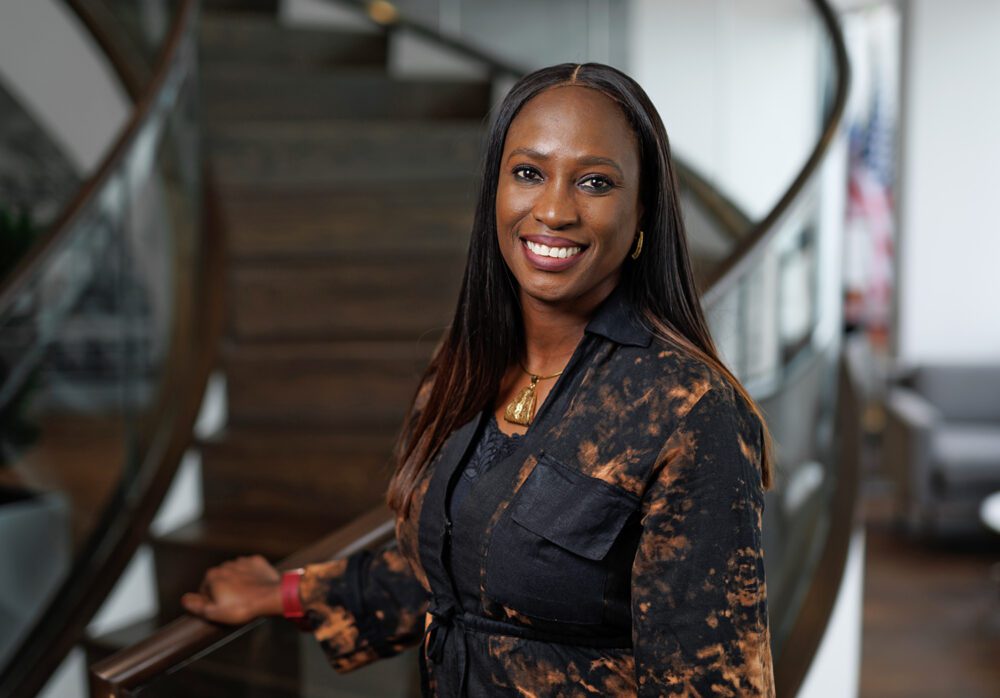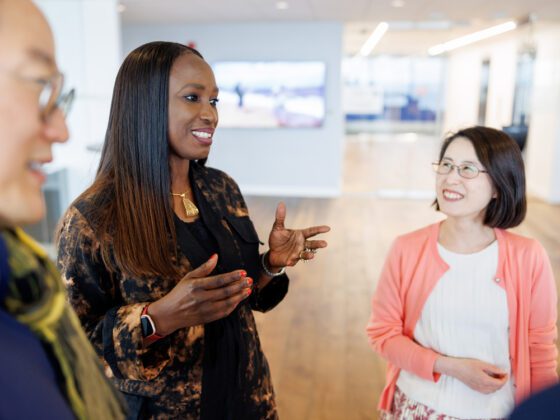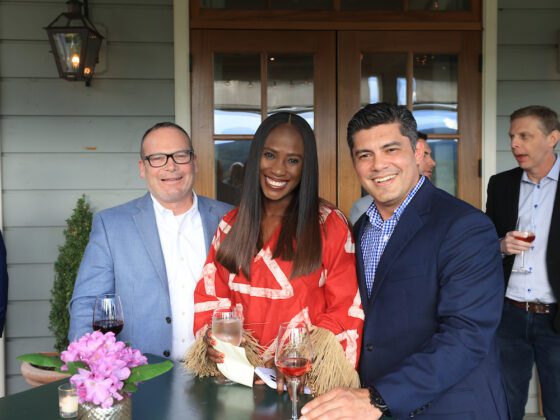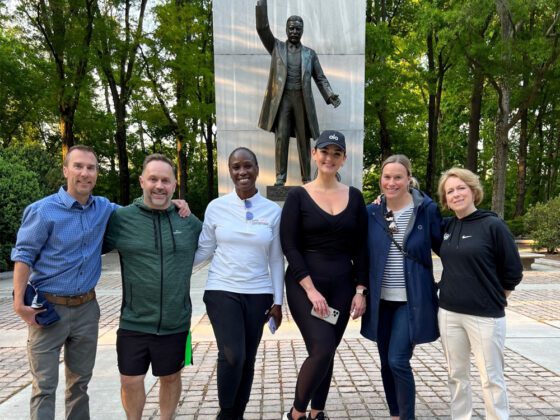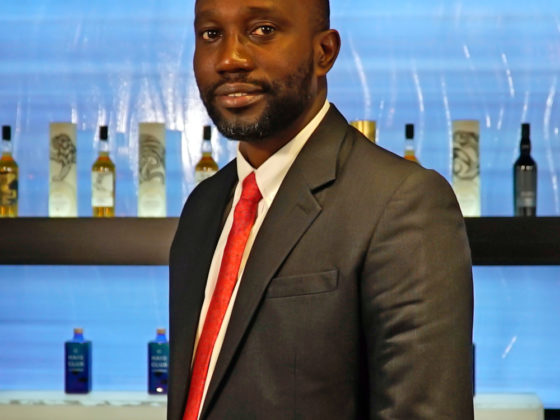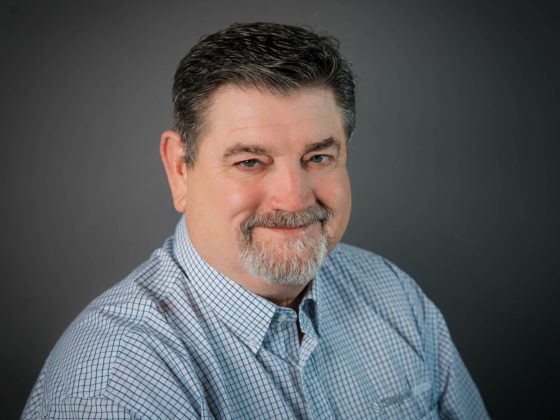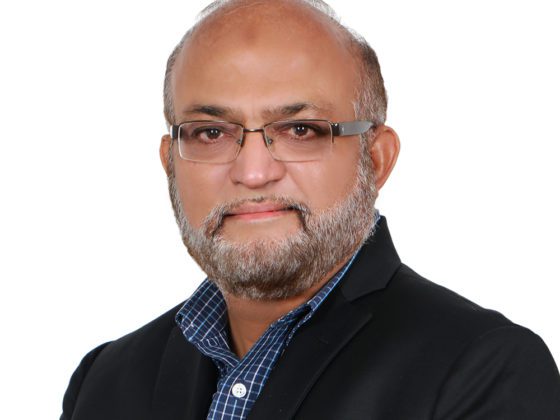Eriye Onagoruwa, External Affairs and Government Relations at Waltersmith Petroman Oil Ltd, spent the first 15 years of her career in the commercial space within the energy industry. She was ready for a change when her current role became available and boldly told her recruiter, “I’ve always wanted to be the face of a company. Give me a chance, I can do this.” Sustainability was also added to her purview after settling into the role, where she has primarily had to learn everything on the job. Always looking for the next challenge, Eriye saw The Executive Program (TEP) as an opportunity to add more value to her organization and prepare for the next step.
How did you choose The Executive Program (TEP)?
I have a friend and we share ideas on how to improve our careers. We had been thinking about ways to up our game and prepare for the next level. She then sends me a blog post on TEP about a Nigerian participant, Obinna Anyalebechi – he’s her friend. I read it and I told her this sounds very authentic. He used very intentional words like “transformational” and “value-added” and so I thought this is something I’d really like to do.
What were your goals in coming to TEP?
I was looking for that 360 analysis of who a leader is and how businesses connect the dots. Oftentimes, you hear the word “strategy” and it’s bandied about and used so loosely, I found that I didn’t really understand what strategy meant. I came to TEP and I can say confidently that I know what strategy is. For me, the learning curve was just interesting.
I was also searching for how can I be a differentiator, how can I speak and have people listen because they know I’m adding value? So, coming to TEP, I’m not sure exactly what I expected, but there was one key thing: I wanted transformation. And TEP did provide that transformation. It’s transformed entirely how I view leadership, how I see growth and development, how businesses can be a force for good. That piece that I was missing in my leadership experience, TEP provided it.
Anything that surprised you at TEP?
There were so many “ah-ha” moments – most times in very punchy sentences. Venkat would say “The more questions you ask, the more effective you are as a leader.” That was like “wow” because many times we don’t like to ask questions, we’re afraid to challenge the status quo.
And the organization was top notch with the attention to detail. It wasn’t just the classroom learning – everything was an embodiment of the entire experience. The program team thought of everything and we were always taken care of. Plus, the fact that you had the professors dedicating time to spend with us for dinners, the excursions, etc. I found it very interesting that for some of the case studies, the professors had actually gone to visit these places, so it put a lot of authenticity into what they were saying, and it was incredible.
How did the experience impact you?
It’s made me want to do things in a different way. When I came, I was the only African, but Venkat made me feel very comfortable in being different and having a different perspective. I also want to be very intentional about my branding as a leader and the steps one should always take.
I also really appreciate the fact that this is a conscious effort to learn for life, so I’m going to continuously invest in myself – it’s a lifelong journey for me.
Share a few memorable moments during the program
Elena is so passionate about numbers, it’s easy to see why she does what she does. Her eyes literally lit up when she’s talking about numbers, so that’s what passion does, that’s what happens when ideas consume you.
Venkat had the most impact on me. Just listening to him and his way of taking you on a journey and then connecting the dots as you progress through that journey.
I enjoyed learning that the idea of the University [of Virginia] was built on the premise that the learning environment shouldn’t be a top-down approach, but it should be an iterative environment with the students and the professors learning together. You could see that and it really resonated with me.
It was interesting to experience the intersection between energy, wellness, and leadership. Seeing how exercise can add to your entire wellbeing as a leader.
The cohort itself, just being in the midst of people with diverse backgrounds and diverse perspectives with different stories, that made a huge impact. Speaking of stories, I enjoyed the storytelling because it just shows how powerful stories can be. I mean, Obinna’s story literally brought me here. Sometimes we’re afraid of what people are going to say about our stories, so we hide, but I like that we were taught that storytelling can be impactful.
What are you taking back with you?
For my career, I’m looking at a bigger role. TEP has opened my mind to see that I can be bigger than where I am. I feel like if I don’t come out of my comfort zone, I’m not going to grow. With this kind of insight, you can’t afford to play small. This program conditions your mind to think differently, to move from the known to the unknown.
For my organization, to just be a better leader continuously, show empathy, but above all, make sure I have enough in my tank to lead myself before attempting to lead others. For me, leadership has always been about service, how do you serve people, how do you impact people.
What would you tell someone about TEP that makes it special?
TEP is all about 360 leadership mindset – everything is connected. The way the environment is co-created, the organization, the attention to details. There are so many good programs out there, but TEP goes over and beyond because of that collaboration to produce the necessary environment that is needed to bring about that transformation. There is something about how the cohort is chosen – it’s a good blend. There’s something about the lessons that you can adapt to your own environment. It forces you to think outside of your comfort zone.

